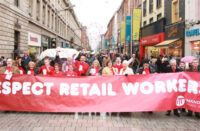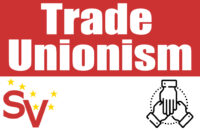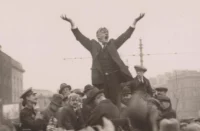The past year or two have seen a number of big developments in the working life of technology and game workers. It seems now that there is a global push from these workers to be organised collectively and to have their voice heard on such things as contract insecurity, sexual harassment, and the ethics of the industry they work in.
Previously within Marxist circles there was some debate about whether or not these types of workers should be considered workers at all. The debate revolved around the difference between physical and mental labour, and what is classified as productive or non-productive labour. The debate has somewhat settled down to a consensus that jobs are a combination of physical and mental labour, and also that the capitalist accumulation regime has changed so significantly that what might have been considered unproductive capital is now a core part of profit-creation, and therefore those creating that profit— workers—should be considered part of the global working class.
Of course the debate about levels of class-consciousness continues, but low levels of class-consciousness are no longer the preserve of white-collar workers. Class-consciousness ebbs and flows with struggle and conditions, and so there cannot be an objective scientific approach to defining class. What is interesting today is that tech and game workers are describing themselves as workers, and this is indicative of the conditions they work in and the issues they are facing.
The focus of much discussion about technology is often merely the number of jobs that will be lost. “The robots are taking our jobs” is an often-heard description. But this is techno-determinist and sees technology as an independent and inevitable force. It misses the fact that technology is designed, shaped and owned by humans and is subject to human agency, influence, and ultimately questions of ownership, regulation, and class struggle.
While technology has a certain direction under capitalism, that is because of the ownership and accumulation regime of capital, not because of some intrinsic dynamic of the piece of hardware or software itself. This view is summed up well by Boreham et al. in their book New Technology @ Work (2008):
Technology itself has no independent causal powers but it can make a significant difference to our working and other lives when it is invested with specific purposes by human agents (managers, policy makers) and is embedded in particular social relationships and institutions. An important consideration that underlies the debate about new technology at work is that decisions that influence the implementation of new technology in various national settings are part of a continuing process of change which will be very likely to constrain future choices and to set a trajectory for the work-place of the future.
A number of shocking incidents this year capture this issue of human control, purpose and influence over technology.
In March 2018 the first pedestrian was killed by a driverless Uber car. This technology is being trialled in the typical Silicon Valley mentality of the “move fast and break things” culture of capitalist innovation. In this example, however, the tragic “break things” element was the death of a pedestrian.
There was also the scandal of the algorithm used by the US agency Immigration and Customs Enforcement, which gave 100 per cent “detain” answers to the data entered, resulting in the unjust detention of immigrants. This was an algorithm created for political purposes but designed to give an air of objectivity and science: “Computer says No”—only all the time!
In July last year internal company documents were released that showed that products supplied by IBM Watson Health had given multiple incorrect diagnoses and incorrect treatment recommendations for hypothetical cancer patients. IBM had already begun advertising the software in an attempt to get ahead of competitors, but the report went do far as quoting a doctor as saying, “This product is a piece of shit.”
In October 2018 the New York Times published an article exposing the link between Facebook’s failure to audit and authenticate accounts and ethnic cleansing in Burma. Senior military officials set up fake Facebook accounts, posing as ordinary individuals, and incited hate speech, ethnic cleansing and murder against minority populations.
And in July 2018 it was reported that Google was stepping away from a contract with the US military to build an AI drone software program for the military, following a number of resignations from the company on ethical grounds and also significant internal staff mobilisation against the contract, including petitions signed by thousands.
These are just a number of examples of how humans and the political-economic-military power structures of the world shape and determine technology, and a far more complex way than simply saying it’s inevitable and it’s going to take our jobs.
This is also the context in which tech and game workers are organising globally into unions and other movements.
The Google example is a good place to begin. When it became generally known to Google employees that the company was profiting from building technology that would help the US military to kill people, many Google employees began rallying against it. Chat groups were set up, petitions were signed and submitted, and a number of senior employees resigned. This collectively organised pressure encouraged the company to move away from the contracts.
Google employees didn’t stop there. They were annoyed at how the company was handling allegations of sexual harassment and discrimination; and so they went about organising the #googlewalkout. They walked out in support of five demands aimed at tackling harassment and discrimination, including the right to representation in meetings.
The Google walkout burst a bubble that the company has carefully tried to create. It projects itself as a great place to work, with employees so happy that the idea of a trade union doesn’t arise. That myth is now shattered.
But what is most interesting about these collective actions by workers in Google is that it is (or certainly seems to be from the outside) self-organised. There is no union leading it. And at the moment it isn’t seeking to become, or to link up with, a union. It is more a collective of Google employees. However, following the walkout there was a significant shift in the language used on social media towards more use of “worker” over “employee” and also increasingly union-like language, such as “collective strength” and “stronger together,” which are more like traditional trade union rallying cries.
In Silicon Valley there has been the emergence of the Tech Workers’ Coalition, an organisation of workers concerned about conditions of employment and also the ethics and morality of the industry they work in. While not a union, it did bravely support trade unions organising cafeteria staff in a number of firms in Silicon Valley and so have certainly nailed their colours to the mast, in the eyes of their employers at least.
Globally, game workers are also becoming active and are more explicitly organising in trade unions, though not always conventionally. The international movement Game Workers Unite (www.gameworkersunite.org) encourages pro-union workers to establish branches and engage in local activity, with a significant amount of autonomy to link with other unions locally, or to register as a trade union in accordance with local laws; and the British branch did just that. Game Workers Unite is now a branch of the Independent Workers’ Union of Great Britain and is actively campaigning and organising workers into the union.
The Office Block, a podcast by the Financial Services Union here in Ireland, recently interviewed game workers on their efforts; it’s worth listening to.²
Workers’ struggle can take many forms, and always a combination of the deliberate and the accidental. And the best of these struggles evolve and develop, rarely remaining static. So too do the organisational forms that struggles take, both shaping and being shaped by struggle. Many of our existing union structures were shaped by the industrial class struggles of the early twentieth century.
For unions to retain their power and to be a crucial part of working-class mobilisation they must evolve, shape and be shaped by the struggle of workers today and its present-day forms.
- Paul Boreham, Rachel Parker, Paul Thompson, Richard Hall, New Technology @ Work, London: Routledge, 2008.
- https://soundcloud.com/theofficeblock/episode-5-can-tech-workers-unite-we-go-deep-into-the-digital-mines.






